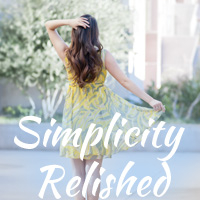I hate to admit it, but I read most when I’m traveling. The otherwise idle time spent in transit is distraction-free (with the exception of movies on the plane), and I find myself more likely to make it through a book while on the road.
This past year, I yearned to learn again– to be engrossed in a topic enough to push through writing that has been solidly researched by an expert. I desired a contrast from what I read and wrote daily: blog posts, personal reflections, lifestyle tips, recipes, travel guides and photographic memoirs. While these genres are inspiring and good for personal development, I rarely find myself learning something new through them.
I realized that, if I wanted to continue learning, I needed to pop a Dramamine and actually open a book during my travels.
So you might be surprised by some of these titles; they’re not exactly stereotypical “beach reads,” and some of them focus on heavy topics. But the truth is, this is still how most of us are going to learn anything of substance or significance once we’re done with traditional education. And if we are to care about the world outside of our immediate community or whatever’s required to do our jobs, then we must seek out these sources.
Learning is difficult but necessary work. It is certainly less relaxing than picking up a book filled with pithy sayings we already agree with.
My Favorite Nonfiction Travel Reads
Now that I’ve defended my somewhat odd reading list, onto the books themselves! Each of these authors is an expert who has changed my perspective on something. I like being challenged with information that is less than easy to swallow. It helps me be more in touch with the reality outside of my daily route.
Cooked: A Natural History of Transformation
This relatively lighthearted piece by Michael Pollan is an excellent choice for food lovers. Pollan is the expert on food policy and one of the major leaders in the real food movement. Pollan’s work has functioned as a wakeup call, revealing ways in which our food industry is detrimental to our health, our environment, and our society. Throughout the book, Pollan explores how food traditions have evolved– and remained the same– over thousands of years. He interviews restauranteurs and chefs, describes meals with candor you can taste, and makes his readers reconsider what it means to prepare and eat good food. Buy it here.
The Locust Effect: Why the End of Poverty Requires the End of Violence
Gary Haugen is one of my favorite people in the world whom I don’t know personally. He is the founder of International Justice Mission, an organization that partners with law enforcement agencies around the world to end human trafficking and other human rights violations. The Locust Effect tells stories from the field– from South America to Africa to Asia– and exposes ways in which the poorest of the poor truly live outside the protection of the law. This book is harrowing and yet difficult to put down, and a must-read for anyone interested in international poverty alleviation. Buy it here.
The Defining Decade: Why Your 20s Matter & How to Make the Most of Them
This is a must-read for anyone in their twenties (or experiencing a quarter-life crisis), caught in the mixed messages of what this decade is for. Meg Jay is a psychologist who has been seeing people in this age group for many years, and she shares her wisdom from research and experience with hundreds of clients. Need some motivation or sound advice? Buy it here.
More Or Less: Choosing a Life of Excessive Generosity
I’ve been championing this book for the past half year because it is really that good. Jeff Shinabarger writes about creative ways to be generous, profiles successful projects started by normal and yet radically generous people, and tells how his own journey towards generosity began with a single knock on the door. This book is for anyone who is tired of living only for themselves, and is ready to live a life that meets greater needs. Buy it here.
The New Jim Crow: Mass Incarceration in the Age of Colorblindness
If you care about social justice in the United States, you should care about mass incarceration. Thankfully, Michelle Alexander has written a book on this complex topic, explaining how exactly we have become a nation with millions of people in prison. Alexander demonstrates the frightening ways in which Jim Crow is still alive in the realities faced by those recognized as felons. Like The Locust Effect, this is not a book for the faint-of-heart, but necessary for anyone who would like to better understand how our systems actually work to the detriment of certain American citizens. Buy it here.



